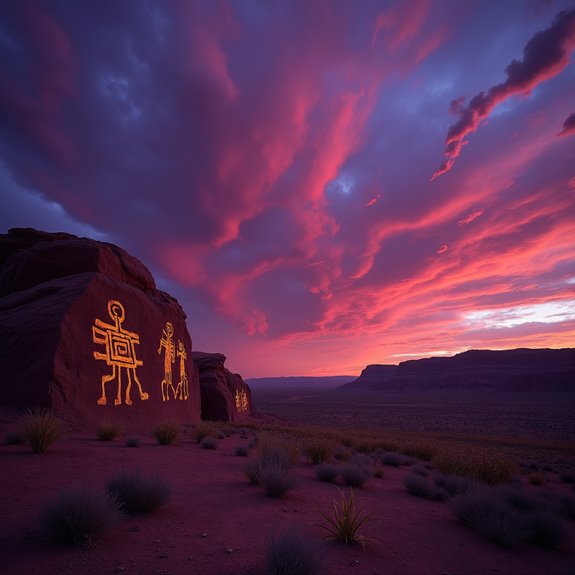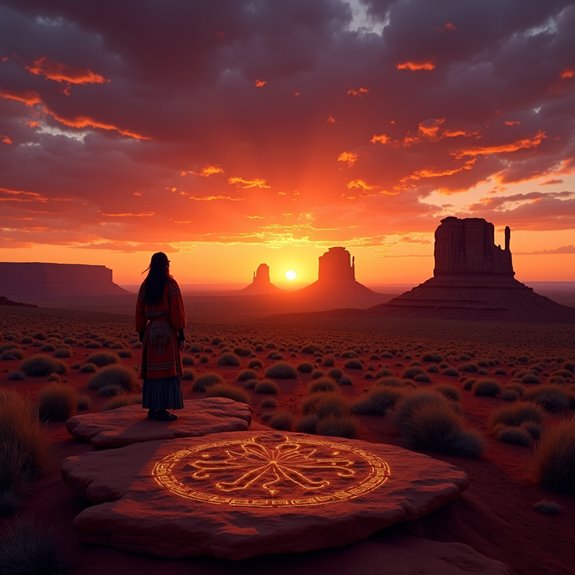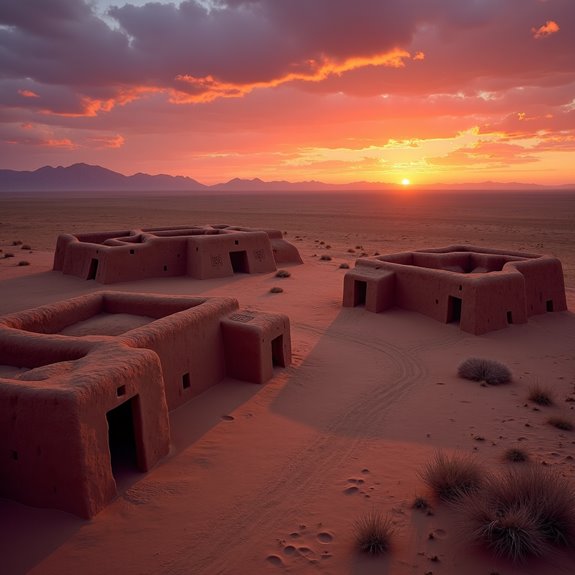Did the Hopi Predict the End Times?
The Hopi people possess a rich tradition of prophecy that raises intriguing questions about humanity’s future. Their predictions often hint at dire consequences but emphasize themes of purification and accountability instead of outright doom. This perspective invites contemplation on personal and collective responsibility. What paths do these prophecies suggest for contemporary society, and how do they challenge prevailing notions of apocalyptic outcomes? Exploring these dimensions uncovers much more than mere predictions.
Introduction

The Hopi people, with their rich cultural heritage and spiritual beliefs, hold unique insights about the end times. Their prophecies have been passed down through generations, reflecting a deep understanding of the cycles of life and the interconnectedness of all beings. These predictions often emphasize the importance of harmony, balance, and respect for nature. The Hopi view time not as a linear progression but as cycles that repeat, making their insights relevant in today’s world. Central to their beliefs is the idea that humanity faces critical choices, shaping the future of the Earth and its inhabitants. As the modern world grapples with unprecedented challenges, the Hopi teachings invite reflection on humanity’s collective path and the potential consequences of its actions.
Cultural Significance of Prophecy

While many cultures have their own interpretations of prophecy, Hopi insights resonate deeply within their community, reflecting a profound connection to their identity and traditions. For the Hopi people, prophecy isn’t merely a prediction—it serves as a guiding force that shapes their understanding of the world and their place in it. It reinforces communal values, encouraging unity and responsibility towards the environment and society. The stories passed down through generations highlight the importance of living in harmony with nature and respecting ancestral wisdom. Furthermore, these prophecies foster resilience and hope, particularly during challenging times. Ultimately, the cultural significance of Hopi prophecy lies in its ability to inspire individuals to actively engage with their heritage, creating a lasting bond among community members.
Notable Cases or Sightings

Throughout history, various notable cases and sightings have emerged within the Hopi tradition, capturing the community’s attention and stirring intrigue among outsiders. One striking instance involves a visionary who claimed to witness a series of prophetic symbols during a dream. These symbols, believed to be messages about future events, spurred discussions among community elders about the impending changes in the world. Additionally, elders often recount sightings of unusual celestial phenomena, which they interpret as signs linked to Hopi prophecies. These events resonate deeply, reinforcing the Hopi’s connection to their spiritual beliefs. As outsiders learn about these cases, they find themselves drawn into the rich tapestry of Hopi tradition, seeking to understand the layers of meaning behind each sighting.
Common Theories or Explanations
As many Hopi community members examine their prophecies regarding the end times, several common theories and explanations emerge, reflecting their unique worldview. Some believe these prophecies indicate a time of purification, where the earth will undergo significant changes. Others interpret the prophecies as warnings about humanity’s disconnection from nature, emphasizing the need for harmony and balance. A recurring theme involves societal challenges, suggesting that turmoil may be necessary for growth and renewal. In addition, many Hopi elders assert that these predictions are not merely forewarnings but invitations to action—encouraging individuals to embrace responsibility for the environment and community. Overall, these perspectives emphasize resilience, unity, and the importance of spiritual awareness in facing potential upheaval.
Frequently Asked Questions
What Specific Prophecies Do the Hopi Have About the Future?
The Hopi have various prophecies about environmental changes, societal discord, and the importance of harmony. They emphasize the need for balance with nature and warn against ignoring spiritual truths as humanity shifts into a new era.
How Do Hopi Beliefs Differ From Other Indigenous Prophecies?
The Hopi beliefs focus on harmony with nature and cyclical time, contrasting with other indigenous prophecies that often emphasize linear progression or catastrophic events. Their prophecies encourage balance, interconnectedness, and a collective responsibility for the Earth.
Are There Hopi Ceremonies Related to End Times Predictions?
Hopi ceremonies often focus on purification and renewal, not directly predicting end times. They emphasize harmony with nature, fostering community healing and spiritual balance, recognizing life’s cyclical nature rather than solely focusing on destruction or doom.
How Do Contemporary Hopi View Their Traditional Prophecies?
Contemporary Hopi view their traditional prophecies as essential wisdom. They’re deeply connected to cultural identity and environmental stewardship. Through ceremonies and teachings, they emphasize balance with nature, urging respect and harmony for future generations.
What Role Does Oral Tradition Play in Hopi Prophecies?
Oral tradition plays an essential role in Hopi prophecies, as it preserves cultural knowledge. Elders share stories and teachings, helping younger generations understand their identity and connection to the land, fostering resilience and continuity within the community.


